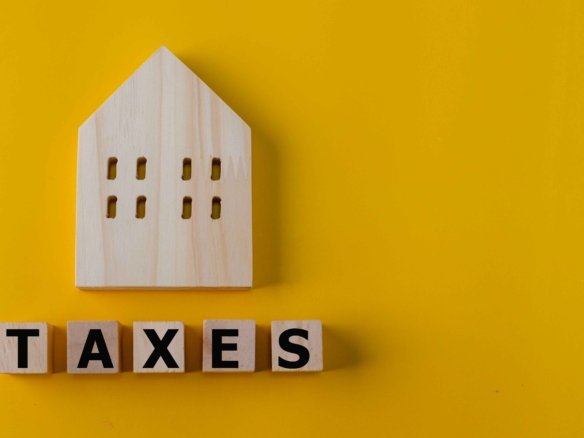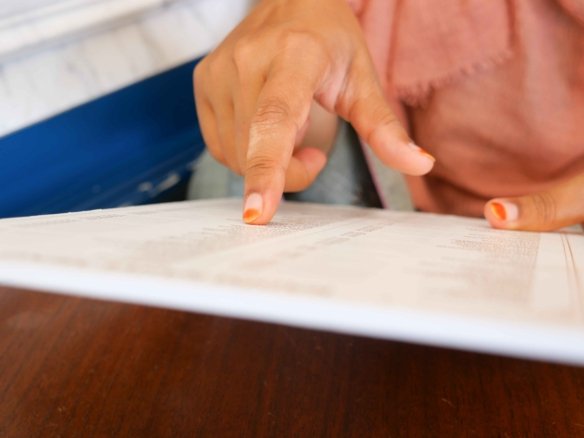A free tax deed list can be a valuable starting point for investors looking to purchase properties through tax deed sales. These lists typically contain details of properties that are scheduled for auction due to unpaid property taxes. While it might seem like a shortcut to great real estate deals, many new buyers rush into the process without fully understanding what’s involved.
Using a tax deed sales list effectively requires more than just showing up and bidding. Avoiding common mistakes will help you protect your investment and make informed decisions. This guide will walk you through how to avoid costly errors when using a free tax deed list to find real estate opportunities.
Not Researching the Property First
One of the biggest mistakes buyers make is failing to research the properties listed. A free tax deed list might show attractive properties at very low starting bids, but what’s on paper isn’t always the reality.
You need to investigate key details like:
- Property condition (is it even livable?)
- Zoning restrictions
- Liens or code violations
- Market value compared to the starting bid
Before you attend a tax deed sale, do your due diligence. Visit the property if possible, and always cross-reference property records.
Overestimating Property Value
It’s easy to get caught up in the excitement of low prices, especially when scanning a tax deed sales list. But just because a property is listed for a few thousand dollars doesn’t mean it’s a bargain. Many properties on these lists come with major issues that affect their true value.
Avoid relying solely on estimated market values from websites. Look into comparable property sales in the area, condition reports, and neighborhood trends. Smart buyers stay grounded and realistic, especially when using a free tax deed list.
Ignoring Hidden Costs
Another common pitfall is ignoring the hidden costs that come after the initial purchase. Just because you win the auction doesn’t mean you’re done spending money.
Here are some common post-sale expenses:
- Property cleanup or renovation
- Title clearing or legal fees
- Owed utility bills or back taxes in some cases
- Property insurance and security
When using a tax deed sales list, calculate your total investment — not just the auction bid. This helps prevent overcommitting to a property that requires more time and money than expected.

Assuming All Liens Are Cleared
Many buyers think that purchasing a property from a tax deed sale automatically wipes away all liens. While some liens may be cleared, not all are.
Some liens, like IRS liens, municipal code violations, or utility bills, might survive the sale. It’s important to review the county’s auction rules and check for any liens recorded against the property before bidding.
Use the free tax deed list as a launchpad, but don’t assume you’re getting a clean title. Research before you bid.
Skipping the Auction Terms and Rules
Every county has its own set of rules when it comes to tax deed auctions. Some require full payment on the day of the auction, while others offer a short grace period. Some allow online bidding, others require in-person attendance.
If you skip reading the auction terms, you might find yourself disqualified or unable to complete your purchase. Worse, you might lose your deposit. Treat the auction rules as essential reading before you act on any tax deed sales list.
Getting Emotionally Attached to One Property
It’s tempting to fall in love with a single property, especially if it looks like a dream deal on the free tax deed list. But emotional decisions in real estate often lead to poor investment choices.
Successful investors treat each property as a business decision. If the numbers don’t work, walk away. There are always more opportunities in future listings.
This is why consistency matters. Get your 3 free weekly listings and keep your pipeline full of potential investments.
Not Setting a Maximum Bid
One of the easiest ways to overspend is failing to set a maximum bid. Competitive bidding can lead to impulsive decisions. When you’re using a tax deed sales list, it’s important to set a clear budget for each property.
Calculate your top bid before the auction starts based on your research, estimated rehab costs, and potential resale value. Then stick to it — no exceptions.
A disciplined investor wins in the long run.
Forgetting to Inspect the Property In Person
Many buyers use the free tax deed list, check out the photos or satellite images, and assume they know what they’re getting. But there’s no substitute for seeing a property in person.
Drive by the property (if legally allowed), take notes, and look for warning signs like structural damage, boarded-up windows, or overgrown lots. Even the best photos can be misleading, and some properties might be completely uninhabitable.
An in-person visit helps you spot red flags early and avoid nasty surprises after the auction.
Underestimating Competition
Tax deed auctions have grown in popularity, especially among new investors using free tax deed lists to get started. This increased competition means you need to be prepared.
Don’t expect to be the only bidder. Know your numbers and be ready for bidding wars. The more informed and prepared you are, the better your chances of walking away with a profitable deal.
Stay ahead of others by keeping your listing fresh. Get your 3 free weekly listings to never miss an opportunity.
Failing to Plan Your Exit Strategy
What happens after you win the bid? Many buyers don’t have a solid plan for what comes next. Are you planning to flip the property? Hold it as a rental? Resell it?
Without an exit strategy, you might end up sitting on a property that drains your resources. Make sure every purchase aligns with your long-term goals, whether you’re building cash flow or capital.
The free tax deed list is only the beginning — the real strategy starts once you own the property.
Relying Only on One Source of Listings
Another mistake is relying on just one list or one county’s auction. Tax deed sales are happening in counties across the country, and each has its own unique opportunities.
Widen your search, diversify your research, and get access to new listings every week. Get your 3 free weekly listings to stay updated on fresh opportunities and avoid putting all your investment hopes in one basket.
Final Thoughts on Using a Free Tax Deed List Wisely
The world of tax deed investing can be highly rewarding, but only if you approach it with the right mindset and strategy. Using a free tax deed list is an excellent starting point — but avoid the common mistakes that trap new buyers.
With proper research, realistic expectations, and a clear investment plan, you can turn these hidden gems into profitable properties. Always stay informed, stay alert, and let the numbers guide your decisions.
Most importantly, get your 3 free weekly listings and stay ahead of the competition with consistent, updated information tailored to your investment goals.






Join The Discussion